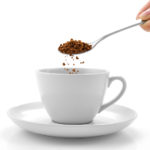By David Blyweiss, M.D., Advanced Natural Wellness
January 5, 2022
Coffee and tea are both fantastic energizers. Like a lot of people, I’ll usually have a cup of coffee or green tea in the morning to get my day started. Then I’ll have two or three cups of green tea during the day. But some people stick with coffee throughout the day.
Whether you’re a coffee or tea drinker – or both – you’re doing more than just giving yourself a boost when you drink it.
In general we know that the caffeine, terpenes, polyphenols and other things in the coffee will lower your chances of all sorts of health conditions. Stroke, dementia and fatty liver are a few of them.
Coffee protects your brain’s vascular system which, in turn, reduces the risk of stroke and dementia. A stroke, of course, can result in vascular dementia because of an interrupted supply of blood to the brain. This type of dementia can also be caused by damage to the small blood vessels in the brain.
Additionally, the antioxidant properties of the chlorogenic acid found in coffee and tea reduce free radical damage of the brain’s neurons.
Both drinks are great for your liver function, too. One or two cups of coffee a day lower levels of liver enzymes AST (aspartate aminotransferase), ALT (alanine aminotransferase) and other enzymes associated with fatty liver disease, both alcoholic and non-alcoholic. Low intake of coffee results in higher enzyme levels.
MD Exposes the Hidden Danger to Your Eyes

When your eyesight starts to fail, it's a real problem. Suddenly you can't go to the grocery store... you can't get to the doctor if you have an emergency... you can't meet your friends for dinner…
Your "regular" doctor doesn't have time to keep up with the latest research. And the same goes for eye doctors. They go to school to learn how to fit you for glasses and contacts, but have no way of preventing the damage and loss of eyesight that threatens your freedom and independence.
Let me show you something that explains a LOT about how your eyes work.
In my FREE Special Report, I'll show you a HUGE, untapped resource for your eyes that safely and naturally restores clear, effortless eyesight.
Click here to get started...
Drinking coffee or tea is also associated with lower chances of Parkinson’s and Alzheimer’s, helps balance insulin and blood sugar levels, protects against certain cancers, and reduces chronic inflammation.
So yes. You can have a few cups of coffee or tea every day – if you drink it the right way.
What You Should Never Put in Your Tea or Coffee
A lot of people like to add cream or milk to their tea or coffee. But adding dairy products to these otherwise healthy beverages destroys their antioxidant benefit.
Dairy creamers from cows contain a protein called casein that your body can’t digest.
The thing is, the antioxidants in your coffee and tea bind with this indigestible protein, which means your body can no longer absorb them. So you basically lose all of the antioxidant power behind the drink. The potential benefits to your health disappear before you even begin to experience them.
Sugar and all of those other artificial sweeteners and flavorings won’t do you any good either. So here’s what I suggest.
If you must sweeten your coffee, use stevia. It’s the only sweetener I recommend to my patients. Unlike sugar, high fructose corn syrup and artificial sweeteners, it actually has a positive effect on your weight, blood sugar and insulin response.
The World's Quickest Solution for Ending Prostate and Urinary Misery
This has recently been revealed to be one of the only real breakthroughs in prostate health.
The seeds of a strange fruit (sometimes called "Chinese Apples") hold powerful phytonutrients that are a revolution in prostate health.
In fact, UCLA and Veterans Administration research have now proved this to be true.
Not only that, but it may be the worlds quickest solution for ending prostate misery.
Simply stated, these phytonutrients represent a huge step beyond beta sitosterol, saw palmetto, and other phytosterols alone.
Simply click HERE if you want to have fast prostate relief...restful, uninterrupted sleep...no more constant "urges to go"...enhanced virility...and optimal prostate support for life.
On occasion, I’ll add in some healthy non-dairy vanilla oat creamer with a cinnamon stick. Unsweetened organic cocoa powder is a tasty way to perk up your coffee. Or add a drop or two of pure vanilla extract to either coffee or tea.
But the simpler you keep your beverages, the better off you will be.
Caf, Half-Caf or Decaf?
The amount of tea and coffee you should drink depends on how sensitive you are to caffeine. If you have high blood pressure or known arrythmias or atrial fibrillation, caffeine could trigger it. Some people can drink four café Cubano espressos in a row and nothing happens. In another person, a single cup of coffee could trigger an abnormal heartbeat.
So if you don’t normally drink much coffee, you should probably only use it when you really need a brain boost – like a long day of meetings or before a lengthy drive. Or perhaps try a “half-caf” – a blend of decaffeinated and caffeinated coffees as I do every morning.
Otherwise, it’s perfectly fine to select decaffeinated teas and coffees. They provide the same health benefits without the stimulant effects of caffeine.
I also recommend that you always select organic green teas and a blend of coffee made from organic coffee beans to avoid heavy pesticide residue.
SOURCES:
Zhang Y, Yang H, Li S, Li WD, Wang Y. Consumption of coffee and tea and risk of developing stroke, dementia, and poststroke dementia: A cohort study in the UK Biobank. PLoS Med. 2021 Nov 16;18(11):e1003830.
Wierzejska R. Can coffee consumption lower the risk of Alzheimer’s disease and Parkinson’s disease? A literature review. Arch Med Sci. 2017;13(3):507-514.
Heath RD, Brahmbhatt M, Tahan AC, Ibdah JA, Tahan V. Coffee: The magical bean for liver diseases. World J Hepatol. 2017;9(15):689-696.
Kim H, Pan JH, Kim SH, Lee JH, Park JW. Chlorogenic acid ameliorates alcohol-induced liver injuries through scavenging reactive oxygen species. Biochimie. 2018 Jul;150:131-138.
Bidel S, Tuomilehto J. The Emerging Health Benefits of Coffee with an Emphasis on Type 2 Diabetes and Cardiovascular Disease. Eur Endocrinol. 2013;9(2):99-106.
Liu K, Zhou R, Wang B, Chen K, Shi LY, Zhu JD, Mi MT. Effect of green tea on glucose control and insulin sensitivity: a meta-analysis of 17 randomized controlled trials. Am J Clin Nutr. 2013 Aug;98(2):340-8.
Malar DS, Prasanth MI, Brimson JM, et al. Neuroprotective Properties of Green Tea (Camellia sinensis) in Parkinson’s Disease: A Review. Molecules. 2020;25(17):3926.
Bourassa P, Côté R, Hutchandani S, Samson G, Tajmir-Riahi HA. The effect of milk alpha-casein on the antioxidant activity of tea polyphenols. J Photochem Photobiol B. 2013 Nov 5;128:43-9.
Niseteo T, Komes D, Belščak-Cvitanović A, Horžić D, Budeč M. Bioactive composition and antioxidant potential of different commonly consumed coffee brews affected by their preparation technique and milk addition. Food Chem. 2012 Oct 15;134(4):1870-7.
Duarte GS, Farah A. Effect of simultaneous consumption of milk and coffee on chlorogenic acids’ bioavailability in humans. J Agric Food Chem. 2011 Jul 27;59(14):7925-31.







